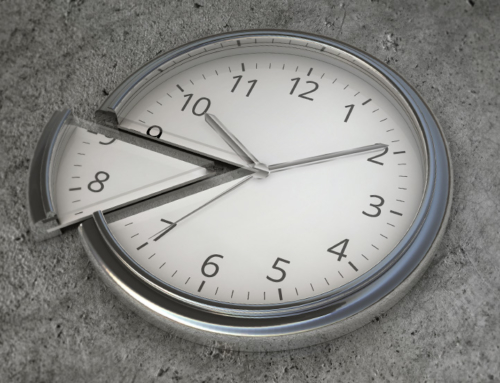If I were a spirit that could view your day from morning through night, how would it look? I guess that virtually every minute of your average day would be filled with some sort of activity. I imagine, also, that you’d tell me that nearly all of these activities were important, even necessary and obligatory. Now, if you were to hire me to help you implement new activities that you’d resolved to incorporate into your daily life as part of a life improvement plan, I would ask you, “Where will you fit these new activities? I don’t really see any glaring holes in your daily schedule.”
And this, perhaps, is the initial problem to face when planning to change one’s life for the better: the near-universal over scheduling we humans living in advanced societies face. So, I suggest a good place to start with a life improvement plan may not be in adding anything new but rather in removing some of which now exists. You may be familiar with Marie Kondo’s book “The Life-Changing Magic of Tidying Up,” which is about decluttering and eliminating possessions that no longer bring a person joy. I suggest something similar, an activity decluttering, eliminating those activities that don’t bring joy or value. By culling that which you do, you can gain some peace and breathing space into your schedule, an opportunity to rest. By rest, I mean an actual coming to rest, in which your mind and body are at ease, resting in the present moment and not striving to get to the next thing on your mental list. And only then is it a good time to consider what activities to add or commit more deeply to.
I know this type of activity culling is not easy. I am a parent and although I now work less hard than I used to – my ability to maintain mental focus is now shortening – I remember the days of working what were two full-time job equivalents: I was full-time faculty at the University of Illinois and I was running and expanding the Blue Tower Institute, the precursor to today’s American Physician Institute.
Nevertheless, reviewing how you spend your time is a worthwhile exercise. For example, I live in a neighborhood where a lot of people volunteer for one or several charitable causes. It’s a way to meet people, socialize, maintain or elevate one’s status, and even do a modest amount of good. I don’t go in for this type of thing very much, but I understand the motivations of the many people I know who do. What tends to happen is that many of these volunteers get highly stressed from having to do the actual work involved or end up not doing the work they committed to. When I’ve talked to friends who are part of this scene about these activities, many say they overcommitted themselves. Committing to future events that backfire is a universal feature of our limited ability to know what will make our future selves happy – evidence for which was laid out by Dan Gilbert in his book “Stumbling on Happiness.”
So, I recommend that we each take an inventory of our activities and find ways to eliminate, simplify, or outsource those things that deserve such a fate. Here is the way I’m categorizing my activities. You can use this approach or come up with your own. I will leave it to you to decide what you want to do or can do with the activities in each category.
- Activities that are important and pleasant
- Activities that are important and not pleasant that can be outsourced
- Activities that are important and not pleasant that need to be done by me
- Activities that are not important but pleasant
- Activities that are not important and not pleasant
This clearing of the less valuable activities from our lives is both an end in itself, to add “rest” to an overcommitted life, and a means to an end, to spend the limited time we have available on what truly matters. My motto for this coming year is “Do fewer things more deeply.” I can be more committed to saying Yes by saying No more frequently.
Until next time,
Dr. Jack
LanguageBrief
“No is a complete sentence and so often we forget that. When we don’t want to do something we can simply smile and say no.” – Susan Gregg
“Tone is the hardest part of saying no.” – Jonathan Price
“If something is not a “hell, YEAH!”, then it’s a “no!” – James Altucher
“A simplified life means that what has to get done will get done. And when we pare down life to its simplest, most beautifully basic parts, we’re left with room to enjoy each other, to rest, and to truly savor life with all our hearts, minds, and spirits.” — Emily Ley







Leave A Comment